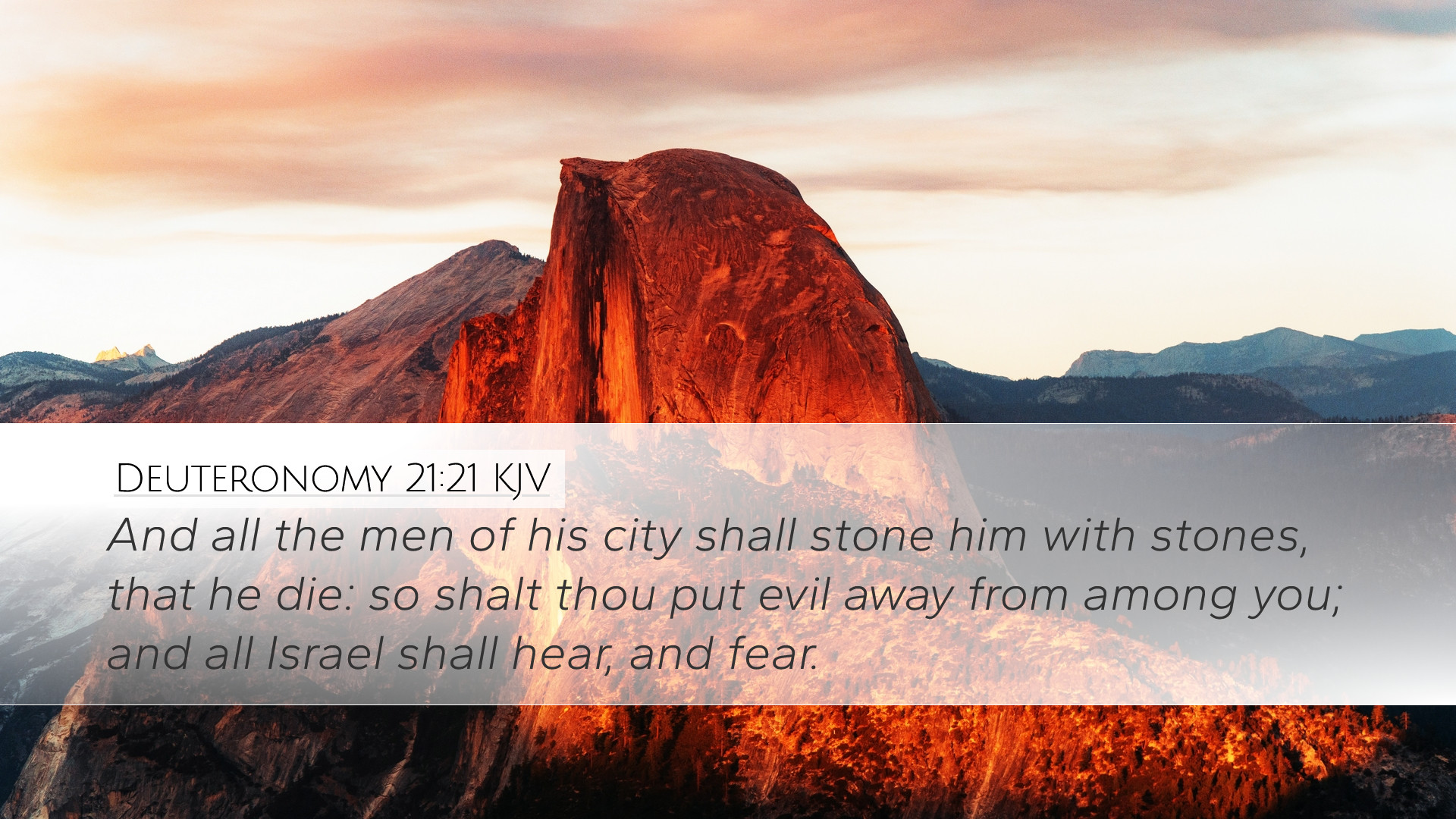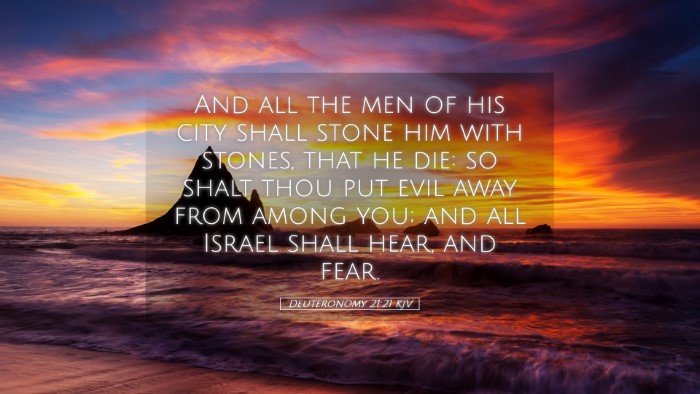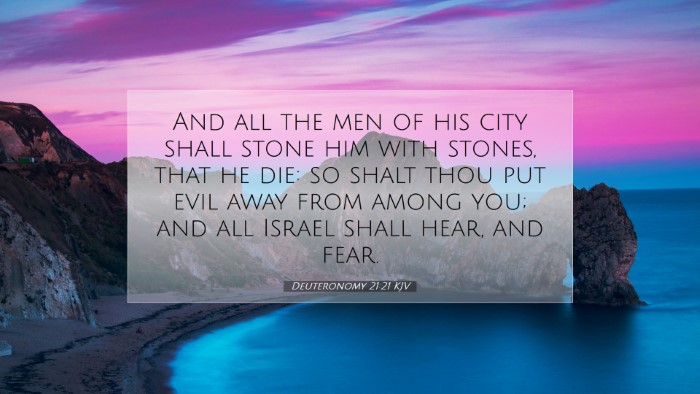Commentary on Deuteronomy 21:21
Verse: “And all the men of his city shall stone him with stones, that he die: so shalt thou put evil away from among you; and all Israel shall hear, and fear.”
Introduction
This verse is embedded in a larger context of laws governing the moral conduct of the Israelites. In Deuteronomy 21, the Lord provides guidelines for various circumstances, indicating the seriousness of maintaining a moral and godly society. The verse specifically addresses the punishment for a rebellious son, a grave matter that reflects broader societal values.
Historical Context
The law outlined in this verse is situated within the Mosaic Covenant, meant to define the social and judicial framework of ancient Israel. It illustrates the collective responsibility of the community towards maintaining obedience to God’s commandments.
Commentary Insights
Matthew Henry's Commentary
Matthew Henry emphasizes the necessity of capital punishment in cases of severe rebellion. He suggests that such harsh measures are intended to deter evil, maintaining the sanctity of family authority and the respect owed to parents. Henry notes that rebellion against parental authority ultimately reflects a larger rebellion against God’s order.
Albert Barnes' Notes on the Bible
Albert Barnes expands on the social dimensions of the punishment, highlighting that the execution must be carried out by the entire community. This communal aspect serves not only as a deterrent but also as a means of purging evil from the nation. Barnes remarks that the fear of such consequences would ideally lead to better conduct among the youth, reinforcing the importance of parental authority in a culture that values obedience.
Adam Clarke's Commentary
Adam Clarke touches on the implications of communal involvement in the punishment. He argues that the involvement of the city’s men signifies the accountability of the entire community in upholding God's law. Clarke also reflects on the moral and ethical dilemmas involved in such a harsh punishment and suggests that this might speak to the need for righteous judgment tempered with wisdom and care for individual circumstances.
Theological Implications
The harshness of this decree underlines God's intent for Israel to remain pure and set apart from surrounding nations, illustrating the seriousness with which God regards both rebellion and moral decay. Theological reflections highlight the balance within divine justice—while God acknowledges and addresses sin, His ultimate desire remains the redemption and restoration of His people.
Moral Application
The principles derived from this verse extend beyond the confines of ancient Israel. Pastors and theologians might explore the concepts of family dynamics, authority, and accountability. The narrative serves as a caution against societal permissiveness regarding disobedience, encouraging a responsible approach to discipline within both familial and communal settings.
Conclusion
In examining Deuteronomy 21:21 through the insights of revered commentators, one finds profound truths about the nature of sin, authority, and community responsibility. While the immediate application may seem distant from contemporary readers, the underlying principles about obedience, accountability, and the pursuit of holiness resonate deeply. This verse serves as a reminder that individuals are part of a larger community and that their actions have consequences that affect the whole.


